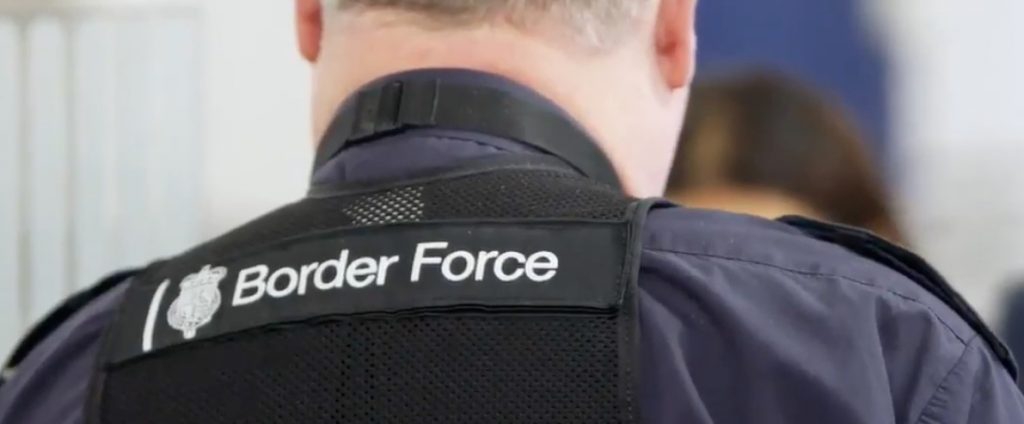
British Border Patrol: The Capitalist Edition
By Harry Pickering
Imagine now that you’re a 2.1 student and have walked into university to complete an essay. Perhaps you’re heading to the shops, to pick up some essentials etc. Now imagine that someone walks up to you and prevents you from doing these things simply because you don’t fit into their target audience consumer or because you’re not a first-class honours student. How would that make you feel?
Now let us imagine that instead of it being the shop or for the privilege to study, you were rejected your right to medication, to shelter, to safety as you have fled danger, sought a better life or simply wished to move past the societal boundaries of a border. You were rejected because you didn’t fit the definition of ‘British’ and were consequentially made to feel like an ‘illegal’ individual. Hopefully the parallel is clear here.
It is hard, despite being in a privileged position myself, to not feel disappointed and let down by the system. The introduction of Theresa May’s ‘Hostile Environment’ in 2012, to me, displays a movement backwards from the so called ‘progressiveness’ of England, with the introduction of policies that allow for the denial of basic human rights to international ‘migrants’ (which would be considered a compliment from the countries that are right wing) i.e. shelter, health and medical benefits, employment and safety, to name a few. Quoting Theresa May, ‘aim is to create…a really hostile environment for immigrants.’
Capitalism, our normal societal way of living, seems to imply that Britain is something to be protected from outside influences (an argument that has existed since the crusades and has most recently been active through the Cold War) and that these outside influences de-structure and corrupt the democratic and systematic way of living we have become accustomed to. As seen in the extensive summary of the UK Governments Budget, the funding placed on the Home Office has increased by £100,000,000 between 2019-2020’s budget and 2020-2021’s budget.
It is clear that as a nation, we are focussed on emphasising the nature of borders within social norms, that we should see ourselves as separate individuals with separate identities based on the nation to which we originate. My question is this however, borders do not exist in the physical realm so why do we place such huge importance on territory and as such, create abstract geographical boundaries to separate ourselves?
Drawing away from a political rant, however, it is interesting to see that as a nation, we value our independence and as such restrict individuals from entering the country. Ironically, we fight for the notion of having a British identity, which many see as being taken away by a younger, more progressive generation. Yet we happily seek to remove the identities of others, simply due to the nation of their birth. This brings in the second question of ‘do we have an inbuilt hierarchy of eugenics within ourself that suggests that there is an ideal individual, citizen or category of features that makes us British?’
At the fundamental heart of this, however, is Capitalism. The very process of globalisation has actually rebounded; global mobility, transport and communication has now, in turn, allowed us to more easily communicate with other nations to express a shared interest of Nationalism, ultimately creating a unified effort to restrict movement into Europe and therefore Britain. In 2015, over 2800 migrants died trying to enter Europe, families loosing close relatives in an already precarious situation.
Returning to what I personally believe, it seems, for me, that rather than increasing our funding towards something that prevents our connectedness and ability to help others, we should return to valuing what truly has allowed the human race to persevere – community, compassion, understanding and empathy. Britain has only developed as a country through what we have gained from others – post war migration helped to restabilise Britain’s economy as an example. Rather than looking at what makes these individuals fundamentally not British (through an outdated and rather discriminatory checklist) we should be looking at how being British is again, in fact, an abstract concept that need not exist, rather that we are global citizens of the world, whose communities, intelligence, compassion and ideology can combine to make a world to which no one feels ‘illegal’ for simply seeking to live life without fear.

0 Comments